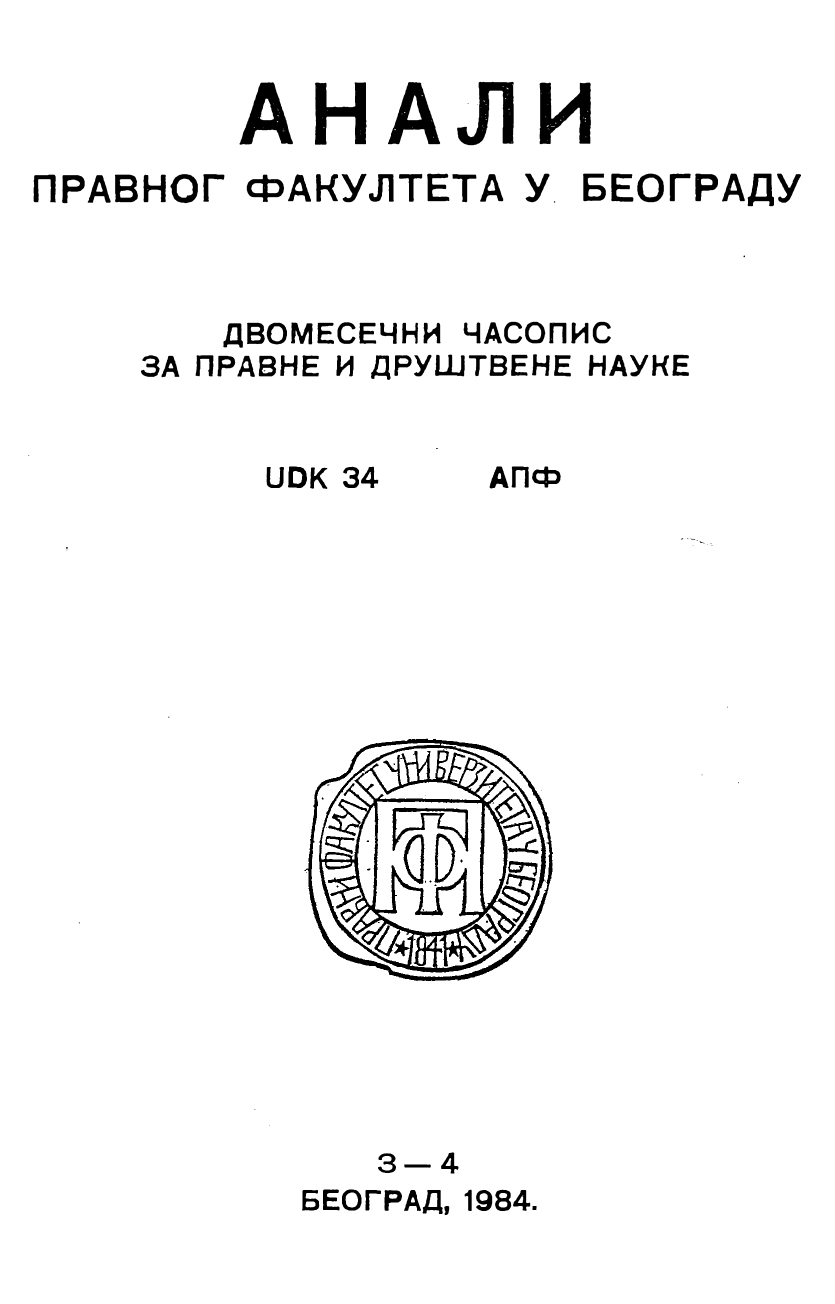МИРОВНА ВЕЋА
COURTS OF RECONCILIATION
Author(s): Vida ČokSubject(s): Law, Constitution, Jurisprudence, Court case
Published by: Правни факултет Универзитета у Београду
Summary/Abstract: The legal regulation of the courts of reconciliation, today, is based on the provisions of the Constitution of the S.F.R. of Yugoslavia (1974), the Constitutions of the Socialist Republics and Autonomous Provinces (1974), and on the Courts of Reconciliation Acts passed in the Socialist Republics and Autonomous Provinces. Courts of reconciliation are self-management courts. Being a form of the self-management judiciary, they are a part of the judical system as a whole. They have been given this status by the provisions of the Constitution of the S.F.R. of Yugoslavia of 1974. But, they existed even far before that time, only their activity was that of out-of-court social bodies, with the main task of interceding between parties in dispute; the reached agreements in such disputes had the legal effect of out-of-court settlement. Within the jurisdiction of the courts of reconciliation is the hearing and passing of decisions in disputes originating from socio-political and other self-management relations, provided by the Constitution and law, as well as disputes taken to the self-management courts by the working people (employees) and citizens in general, provided that the disputes derive from rights they are free to exercise. Within the jurisdiction of the court of reconciliation is also the hearing and passing of decisions in certain disputes regulated bj' Article 445. of the Criminal Procedure Act and Article 486. of the Lawsuit Procedure Act. A closer analysis has been devoted, apart from the jurisdiction of the courts of reconciliation, to their organization, procedure, method of reaching and passing decisions, and the question of execution of decisions. In an analysis of the Court of Reconciliation Act, compiled data of a poll on the activities of the courts of reconciliation during the period 1981/1982 was used as a basis. Today, the functioning of the courts of reconciliation, as self management courts, attracts particular attention not only in regard to their role of mediator with a view to reaching settlements, which is their main activity, but also in regard to their resolution of disputes by the passing of decisions. This function of the courts of reconciliation reflects one of the most significant characteristics of the constitutional transformation of the courts of reconciliation into self-management courts.
Journal: Анали Правног факултета у Београду
- Issue Year: 32/1984
- Issue No: 3-4
- Page Range: 474-492
- Page Count: 19
- Language: Serbian

